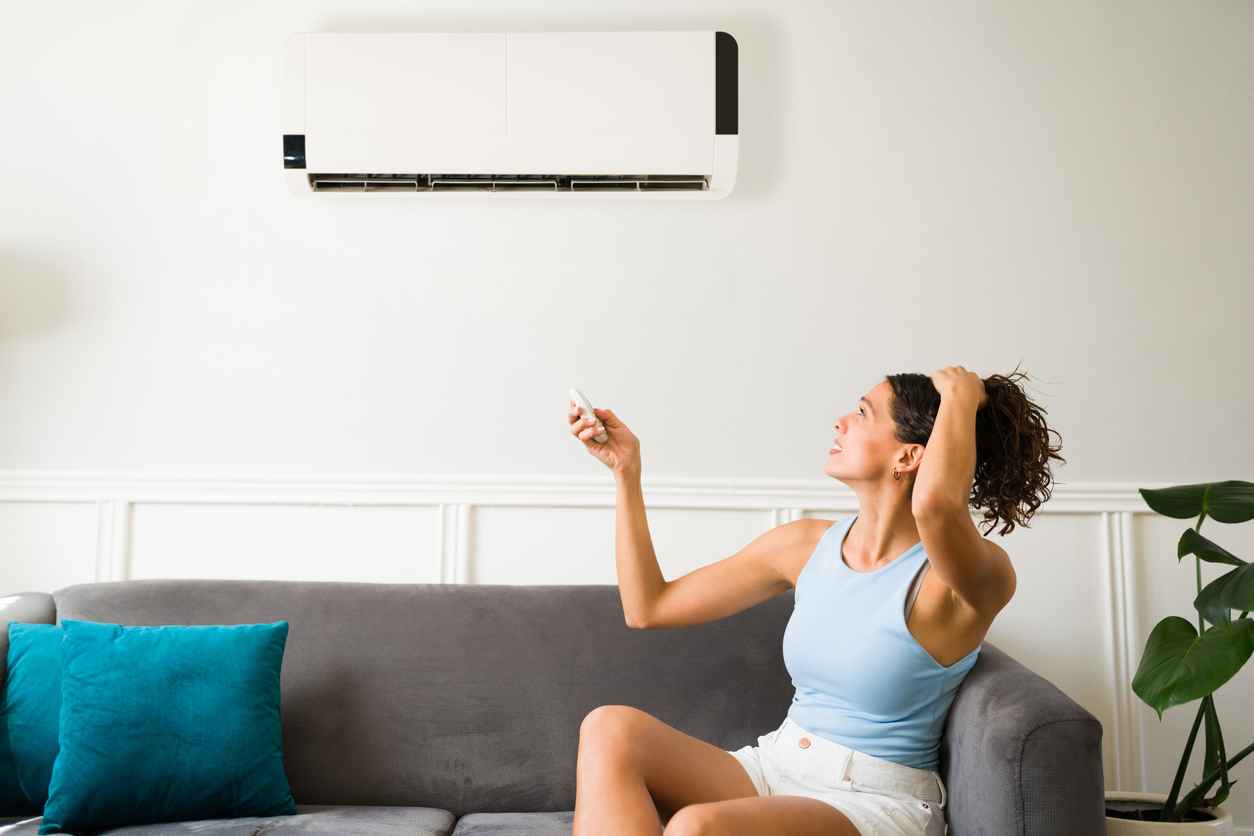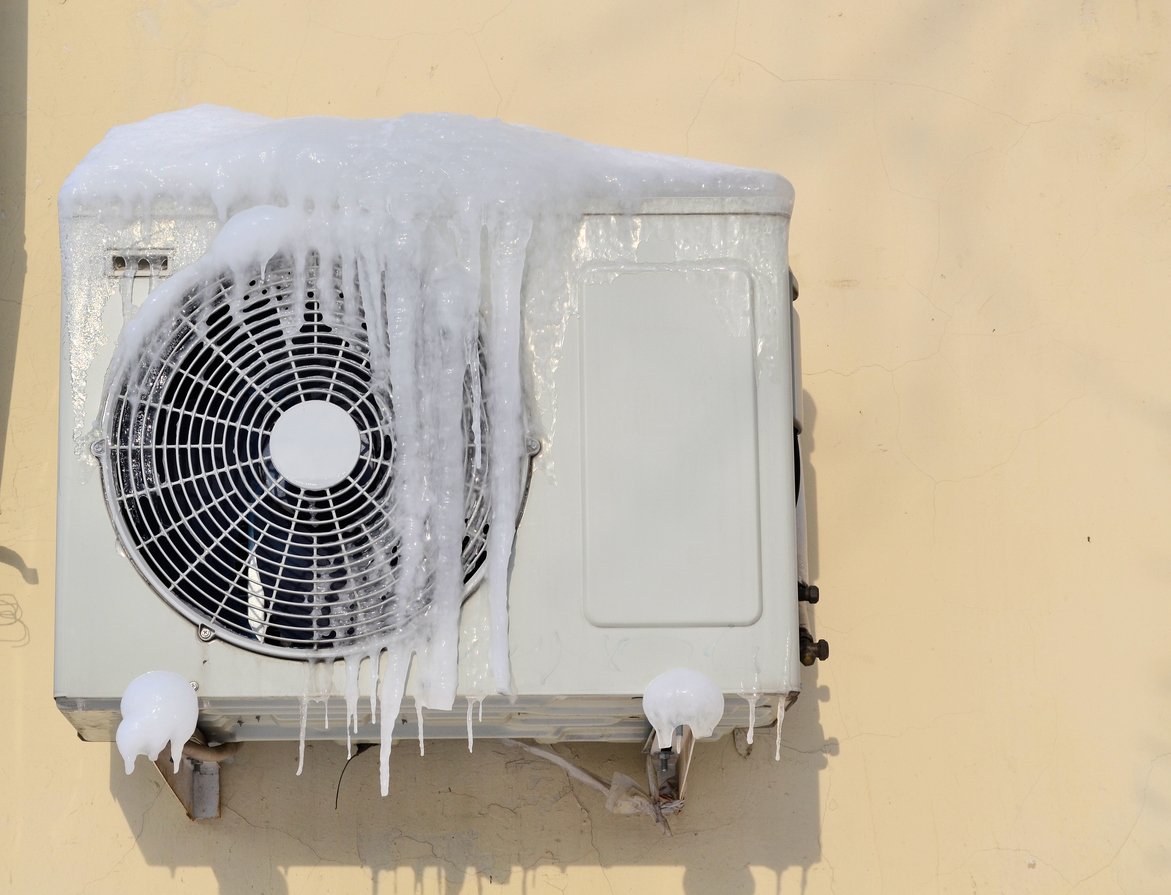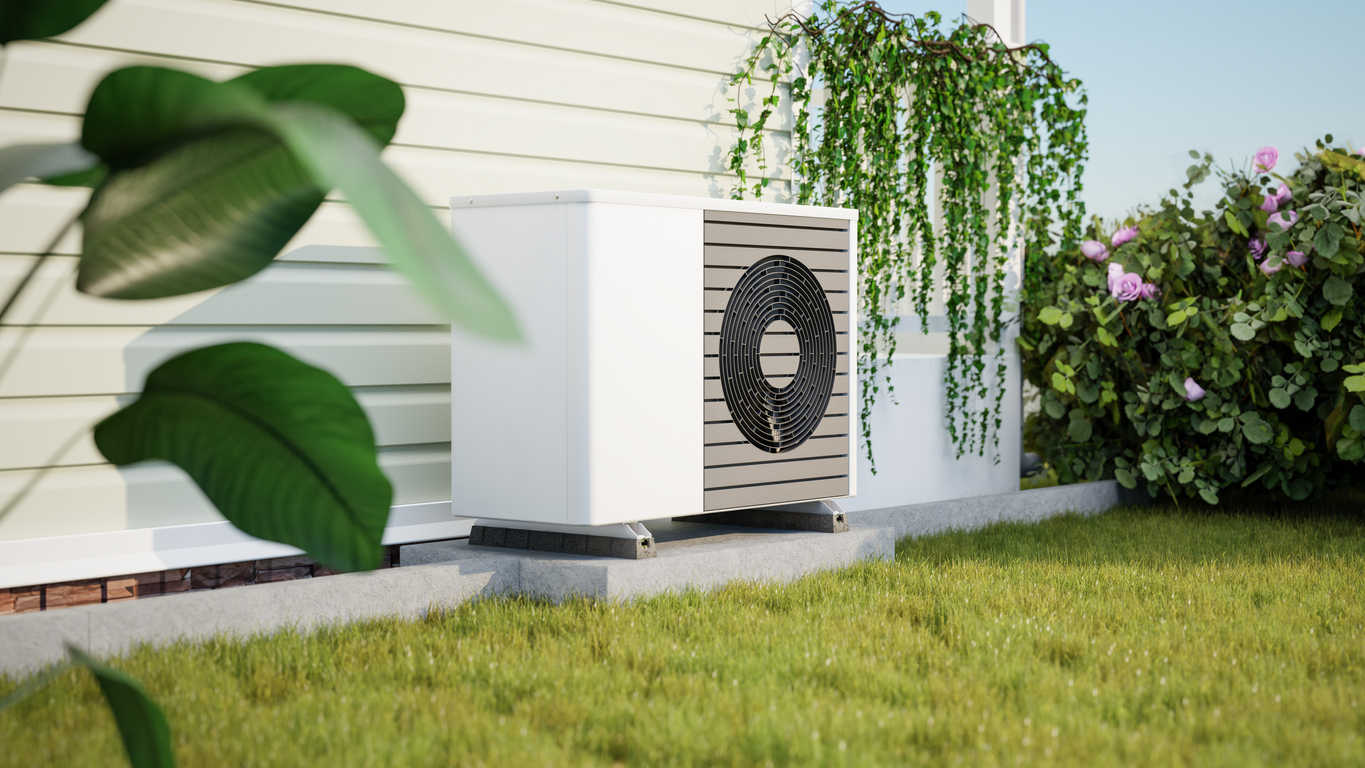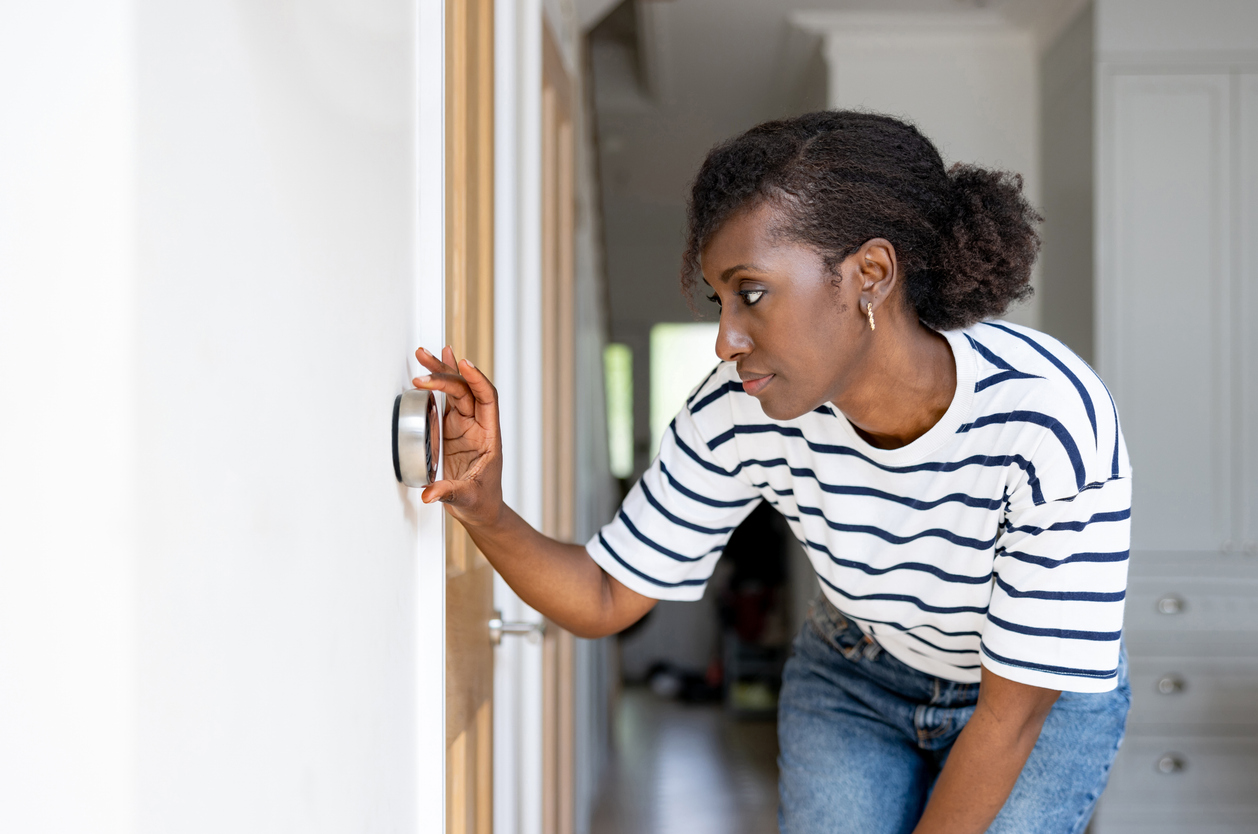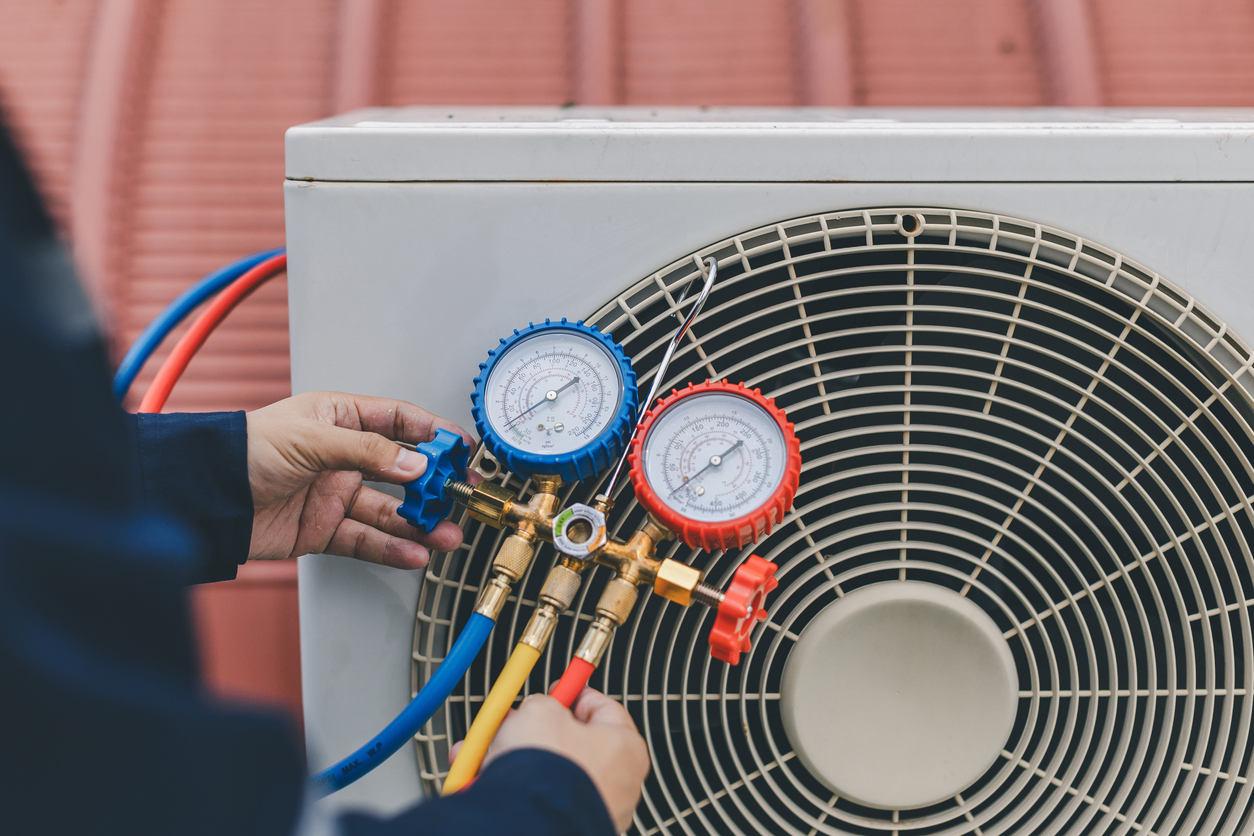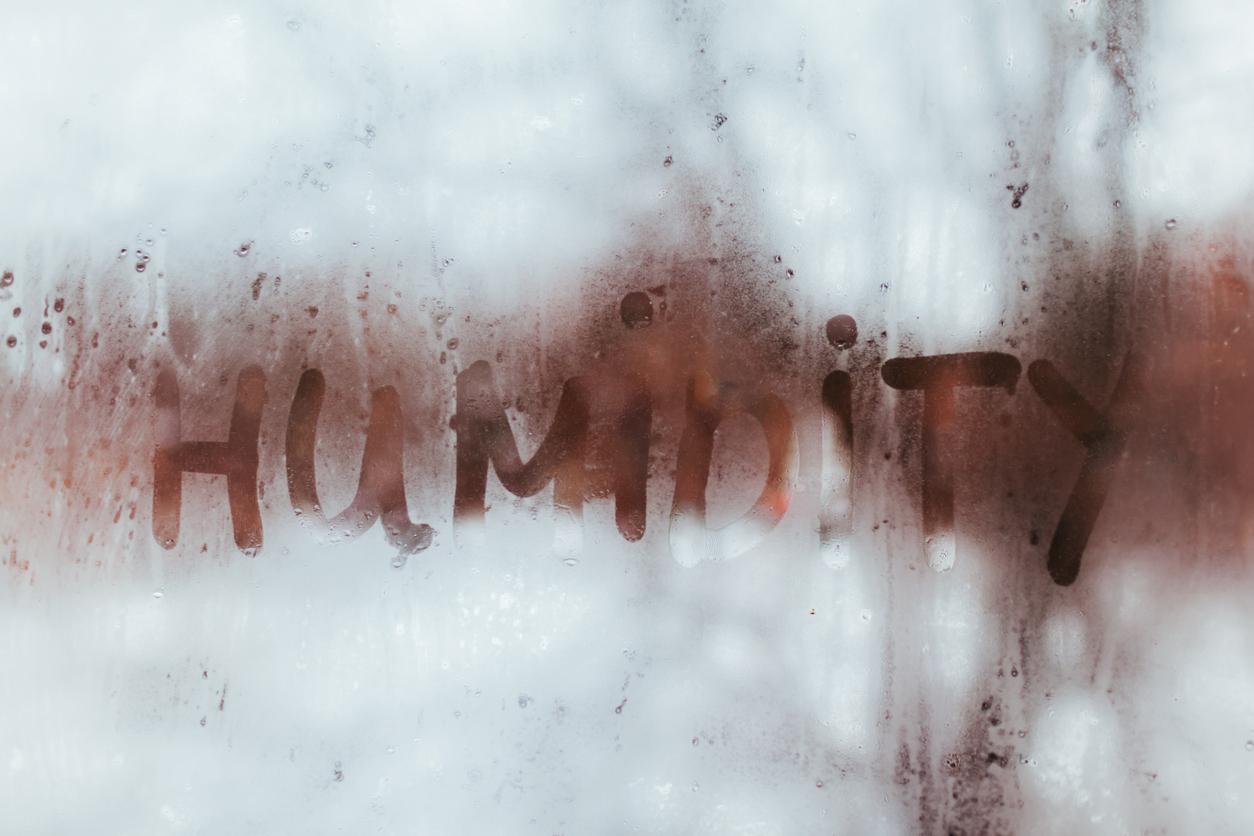
AC is Cooling But Not Removing Humidity
If you’ve noticed that your AC is cooling but not removing humidity, you’re not alone. This is a common issue many homeowners face, especially during the hot and humid summer months. While your air conditioner might be keeping your home cool, the excess humidity can make it feel uncomfortable and even lead to other problems like mold growth and poor indoor air quality. In this blog post, we’ll explore the reasons why your AC might not be dehumidifying properly and what you can do to fix it.
Common Causes of High Humidity Despite Cooling
Incorrect Thermostat Settings
One of the simplest reasons your air conditioner is cooling but not removing humidity could be incorrect thermostat settings. If your thermostat is set to “auto” rather than “on,” the fan will only run when the cooling cycle is active. Setting the fan to “on” can lead to humidity issues as the air is continuously circulated without adequate dehumidification.
Oversized Air Conditioner
An oversized air conditioner cools your home too quickly, which might sound like a good thing, but it actually isn’t. Rapid cooling does not allow the unit enough time to remove humidity from the air effectively. The result is a cool but clammy indoor environment. Ensuring your AC unit is properly sized for your home can resolve this issue.
Low Refrigerant Levels
If your AC is low on refrigerant, it will struggle to cool your home and remove humidity efficiently. Low refrigerant levels often indicate a leak, which requires professional attention. An HVAC technician can diagnose the issue, repair any leaks, and recharge the refrigerant to the correct level.
Dirty Coils and Filters
Dirty evaporator coils and clogged air filters can hinder your air conditioner’s ability to dehumidify the air. When the evaporator coil is dirty, it can’t absorb heat and humidity as effectively. Similarly, a clogged filter restricts airflow, reducing the system’s overall efficiency. Regular maintenance, including cleaning the coils and replacing filters, can help your AC perform optimally.
Poor Ventilation
Poor ventilation can exacerbate humidity issues. If your home lacks proper ventilation, the moisture removed by the air conditioner has nowhere to go and ends up circulating back into your living spaces. Improving your home’s ventilation by using exhaust fans, opening windows, or installing a ventilation system can help reduce indoor humidity.
Leaky Ducts
Leaky ducts can allow humid air from outside or other parts of your home to enter the air conditioning system. This can significantly reduce the system’s ability to dehumidify the air. Sealing any leaks in your ductwork can improve the efficiency of your AC and its ability to remove humidity.
Solutions to Improve Dehumidification
Now that we’ve identified some common causes of high humidity, let’s look at solutions to ensure your air conditioner not only cools but also dehumidifies your home effectively.
Adjust Thermostat Settings
Start by checking and adjusting your thermostat settings. Ensure it’s set to “auto” instead of “on” to allow the system to cycle off and on properly, giving it time to remove humidity during each cycle.
Regular Maintenance
Schedule regular maintenance for your air conditioner. This includes cleaning or replacing air filters, cleaning the evaporator and condenser coils, and ensuring there are no obstructions in the airflow. Regular maintenance keeps your system running efficiently and helps it dehumidify effectively.
Install a Dehumidifier
If your AC alone can’t keep up with the humidity, consider installing a whole-house dehumidifier. This device works alongside your air conditioner to remove excess moisture from the air, providing a more comfortable indoor environment.
Upgrade to a Variable-Speed AC
Consider upgrading to a variable-speed air conditioner. Unlike traditional single-speed units, variable-speed systems can adjust their speed to maintain a consistent temperature and humidity level. This allows for more efficient and effective dehumidification.
Seal Duct Leaks
Have a professional inspect your ductwork for leaks and seal any found. This prevents humid air from entering the system and ensures your air conditioner can effectively remove humidity from the air.
Check for Refrigerant Leaks
If you suspect low refrigerant levels, contact a professional to check for leaks and recharge the system if necessary. Proper refrigerant levels are crucial for both cooling and dehumidification.
Why Is Dehumidification Important?
Understanding why dehumidification is essential can help you appreciate the need to address any issues with your air conditioning system. High indoor humidity levels can lead to:
- Mold and Mildew Growth: Excess moisture creates an ideal environment for mold and mildew, which can cause health issues and damage your home.
- Poor Indoor Air Quality: High humidity can increase the presence of allergens like dust mites, leading to respiratory problems and other health concerns.
- Uncomfortable Living Conditions: Even if your home is cool, high humidity can make it feel warmer and more uncomfortable.
Contact Ultimate Heating & Air for All Your HVAC Needs
If you’re struggling with an AC that is cooling but not removing humidity, it’s time to take action. Ultimate Heating & Air is here to help with all your HVAC needs. Our team of experienced technicians can diagnose and fix any issues with your air conditioning system, ensuring it cools and dehumidifies your home effectively. Contact us today to schedule an appointment and improve your indoor air quality.

